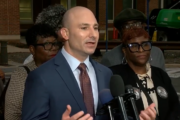When individuals or couples struggle with infertility or hope to extend their timeline for bringing children into the world, fertility specialist physicians can provide assistance.
These doctors can also perform sterilization operations such as tubal ligations and vasectomies.
Future fertility doctors need to be curious and innovative because the field moves quickly; technology is changing all the time. They should also be nonjudgmental and good listeners.
“We are looking at people who can take care of patients during the most vulnerable part of their lives,” says Dr. Gary Frishman, a clinical professor of obstetrics and gynecology at Brown University’s Warren Alpert Medical School in Rhode Island.
Below is an education guide for anyone who plans to become a fertility specialist doctor.
Academic Paths Into Fertility Medicine
An aspiring reproductive medicine physician needs to obtain bachelor’s and medical degrees. There are two pipelines into the field of fertility medicine, and the route you take depends on the population you intend to treat.
Medical school graduates should complete residencies in obstetrics and gynecology if they intend to focus on female fertility, and in urology if their goal is to concentrate on male fertility. Many OB-GYN and urology residencies now include training in transgender medicine.
After residency, a future reproductive medicine physician will need to complete a fellowship that focuses on fertility and infertility issues. Aspiring fertility doctors who complete OB-GYN residencies typically pursue fellowships in reproductive endocrinology, while those who finish urology residencies usually pursue fellowships in andrology.
Finishing a residency and fellowship in reproductive medicine usually takes at least six years, often seven.
Future reproductive doctors also need to seek national board certification and state medical licensure.
Reasons to Get Trained in Fertility Medicine
Work is abundant in the reproductive medicine specialty.
Over the last four and a half decades, more than 9 million babies have been born due to in vitro fertilization and other assisted reproductive technology.
“You have some of the most interesting medical problems that are hormonally related, and you have some of the most complex and advanced surgeries, and then on top of that you have a field that is growing and expanding so much,” Frishman says.
In addition, since the recent U.S. Supreme Court ruling that overturned the Roe vs. Wade decision, many doctors say they’ve seen more patients seeking sterilization.
Some significant questions about the human body and public health are directly related to fertility medicine, says Dr. Eve C. Feinberg, an associate professor of obstetrics and gynecology and director of the reproductive endocrinology and infertility fellowship program at Northwestern University’s Feinberg School of Medicine in Illinois.
[See: U.S. News Rankings of the Best Hospitals for Urology.]
According to Feinberg, the most fascinating puzzles in fertility medicine surround how to extend the biological clocks of women, what the potential environmental and nutritional causes of fertility disorders are, why IVF sometimes fails and whether there is an upper age limit beyond which it is inadvisable for men to conceive children. There are also many ethical debates surrounding moral limits for gene editing and embryo selection, in addition to practical considerations about the accuracy of genetic testing, she adds.
Facts to Know and Courses to Take for a Career as a Fertility Doctor
Obstetrician-gynecologists and urologists in this field of medicine emphasize that roughly half of infertile heterosexual couples are struggling to have children due in part to the man’s reproductive health problems, contrary to a common misconception that women have the overwhelming majority of fertility disorders.
“It’s a shared problem between the man and the woman, and to assume it’s just a female problem is naive,” says Dr. Larry I. Lipshultz, founder of the Society for the Study of Male Reproduction and a former president of the American Society for Reproductive Medicine.
According to Lipshultz, the chief of the division of male reproductive medicine and surgery at Baylor College of Medicine in Texas, fertility problems are sometimes an indication of serious undiagnosed health conditions that need to be treated.
[Read: What an Orthopedic Surgeon Does and How to Become One.]
Dr. Craig Niederberger, head of the urology department at the University of Illinois–Chicago College of Medicine, suggests that because reproductive medicine is an interdisciplinary field, there are many types of classes an aspiring fertility doctor might want to take prior to beginning residency and fellowship training, during college and medical school.
Subjects worth studying in premed or medical school years include biology, genetics and psychiatry or psychology, Niederberger says.
Anyone who intends to enter the urology half of the fertility medicine profession should complete an elective rotation in urology during medical school. A rotation or clerkship in obstetrics and gynecology is typically a mandatory component of the med school curriculum.
Niederberger advises future reproductive doctors to take nonscience classes during college, noting that as a double major in chemistry and theater, he now uses his theater knowledge more frequently than his chemistry know-how since he does a significant amount of public speaking.
Searching for a medical school? Get our complete rankings of Best Medical Schools.
More from U.S. News
What a Dermatologist Is and How to Become One: A Guide for Aspiring Doctors
What Medical School Hopefuls Should Know About Types of Doctors
Are You Ready to Pay for Medical School?
How to Become a Fertility Specialist originally appeared on usnews.com







